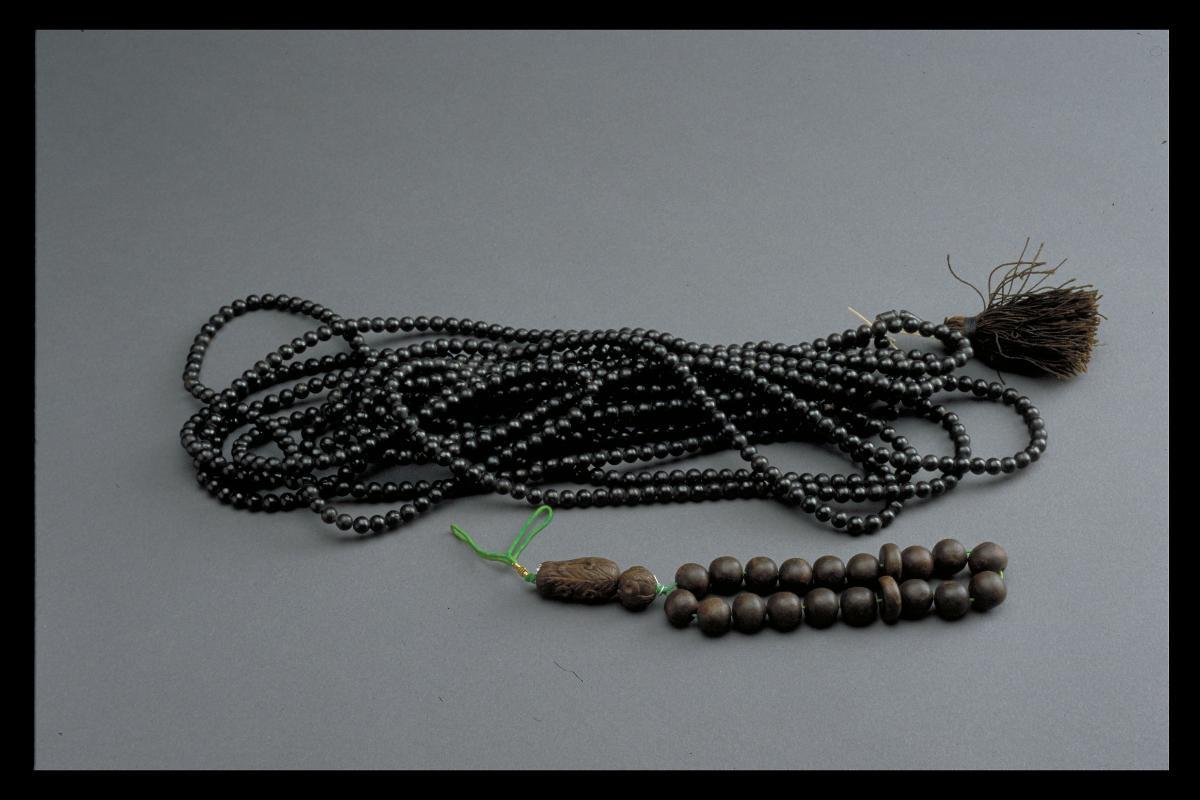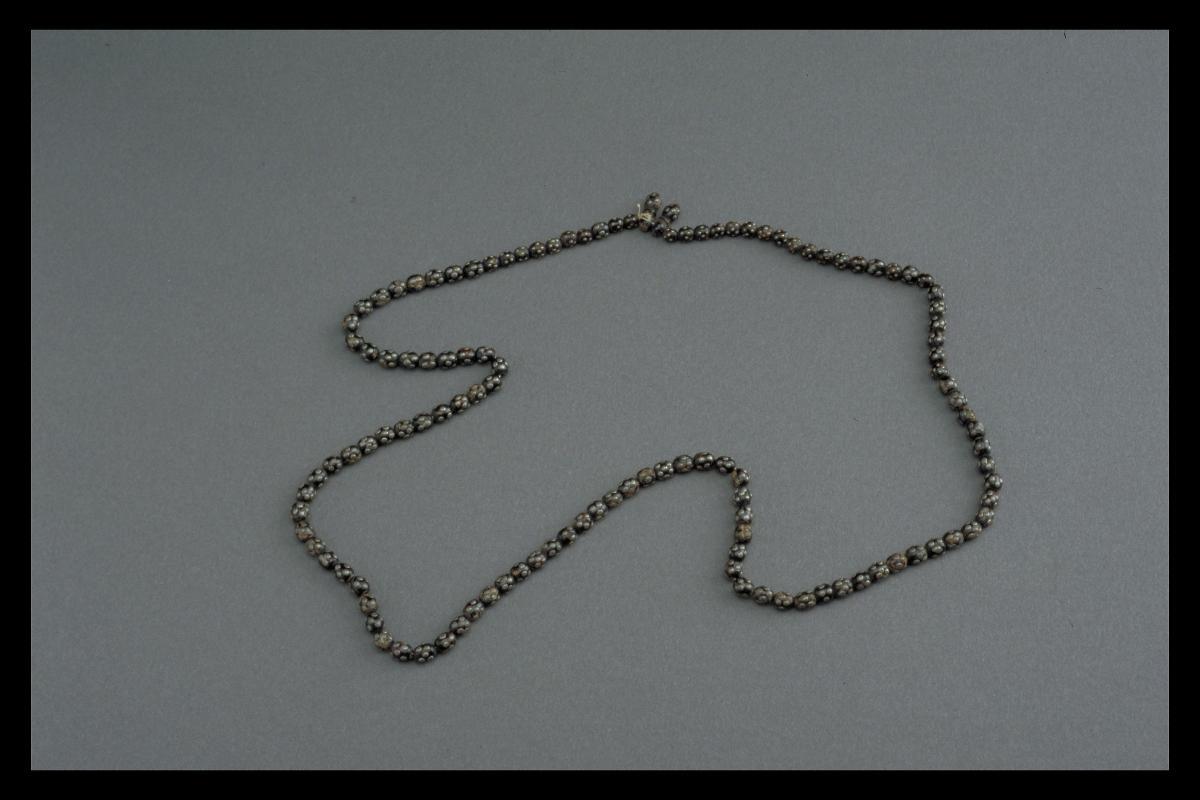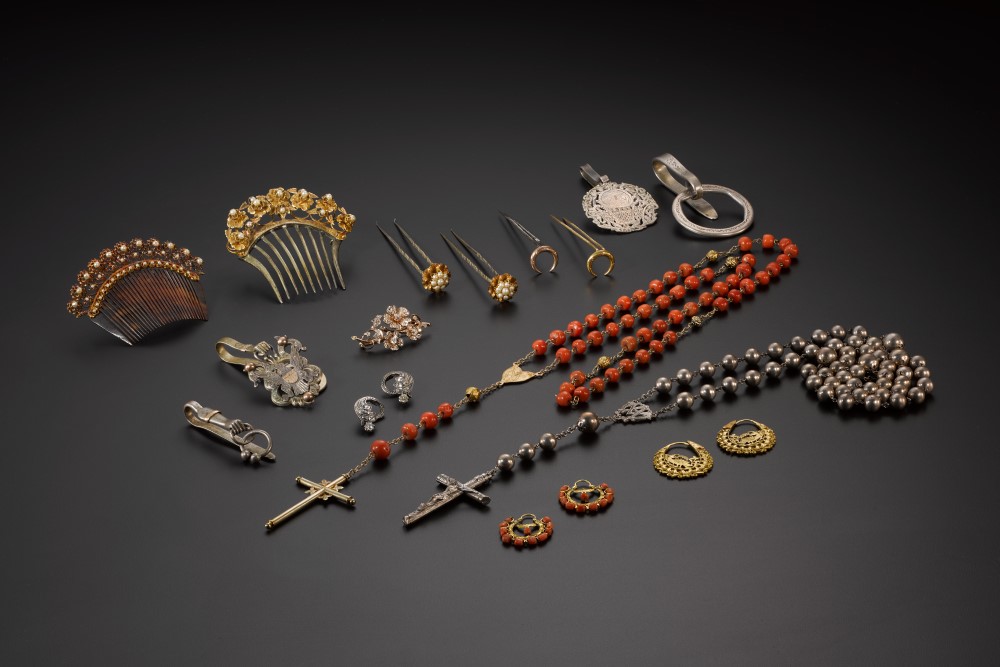This set of prayer beads probably belonged to a Sufi (mystic), also known as darwish in Persian (from which we get the English term ‘dervish’). The darwish would dress differently from the rest of society, wearing simple woollen clothes and carrying ‘kashkul’ (begging bowls), and prayer beads. Prayer beads are used for ‘Zikr’, which is the rhythmic repetition of specific phrases or words glorifying God. These beads enable the worshipper to keep count of the number of repetitions. In some Sufi rituals, zikr sessions last for days. The Sufi in his ‘Path’, must undertake voluntary poverty and asceticism. Poverty (‘faqr’) should be more of a spiritual nature (absence of desire for material wealth) than actual physical poverty. Many Sufis who pursued this concept, did renounce their worldly belongings.


















